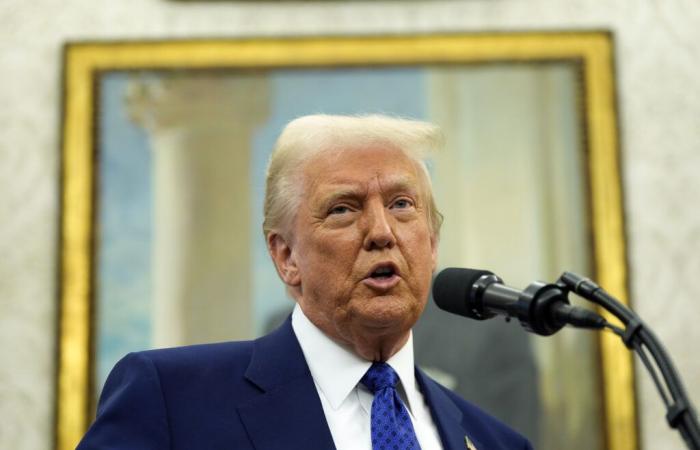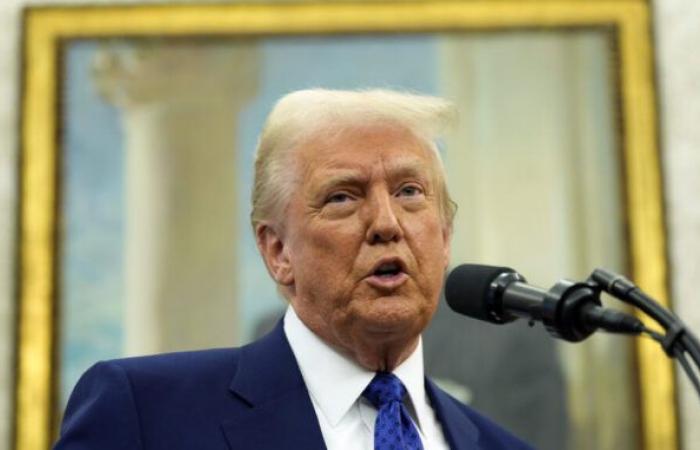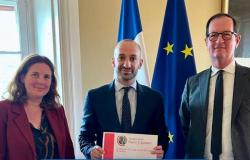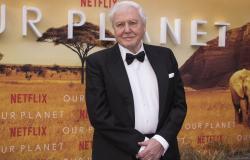Prime Minister Mark Carney will be closely watched by the furious Canadians against Donald Trump – and by an anxious business in search of pricing reduction – during his meeting with the American president on Tuesday in Washington.
After months of threats of annexation by Donald Trump, the new Prime Minister will have to find a delicate balance: showing strength while preserving the place of Canada in a crucial North American trade Agreement that the president’s customs duties seek to overthrow.
“My government will fight to get the best agreement for Canada,” said Carney on Friday at his first press conference since the election.
The Canada-US-Mexico trade agreement, called ACEUM, was negotiated under the first Trump administration. At the time, Trump qualified him as a better agreement ever concluded and Canadian officials qualified him as a victory for Canada.
ACEUM must be re-examined next year, but, after Mr. Trump’s return to the White House, it quickly became obvious that the president intended to undermine the continental trade agreement.
Canada and Mexico were struck very early by customs duties that the president has linked to the flow of fentanyl and cross -border people. US government data shows that a small volume of fentanyl is intercepted at the Canadian-American border. The two countries were also affected by the customs duties imposed by Donald Trump on steel, aluminum and automobile.
Donald Trump’s provocations understood the fact of qualifying Prime Minister at the time, Justin Trudeau, “governor” and to affirm that the country would be better off as an American state.
If these rights have alarmed the closest neighbors in the United States, signs show that the president always attaches importance to ACEUM, a key achievement of his first administration.
When Donald Trump launched his trade war to the world with “reciprocal” customs duties in early April, Canada and Mexico were not concerned. Donald Trump suspended the most important customs duties for 90 days, saying that this would allow time to negotiate agreements, but has maintained a universal tariff of 10 % on most imports in the United States.
“To read well, Canada and Mexico seem to have been put aside (…) Hopefully this means that the administration will consider the ACEUM as a whole,” said Laura Dawson, expert in Canada-American relations and general manager of the future Borders Coalition.
Tuesday’s meeting could shed light on Donald Trump’s project for one of the most stable and most friendly bilateral relations in the world. last week, Donald Trump described Mark Carney as a “very sympathetic man” and explained that he expected to have “excellent relations” with Canada.
The American representative on trade, Jamieson Greer, suggested that the Trump administration wanted to maintain partnerships with its nearby neighbors. Greer told Fox News last week that “the president ardently wishes to maintain healthy relations in North America”.
“We should have more manufacturing production in North America – we must have it in our hemisphere,” said Greer.
But we still don’t know what the Trump team expects from Canada.
A possible “good agreement”
Referring to negotiations with other countries, Mr. Greer described as “good agreement” an agreement that would see countries lowering their customs duties and abolishing non -tariff barriers on products such as American agricultural products.
He added that a good agreement would respond to American concerns concerning digital trade and intellectual property, would harmonize export controls for economic security and offer commercial opportunities to the United States, including investments in critical minerals.
ACEUM has enabled customs duties franchise for almost all goods between Canada and the United States. The United States Ministry of Defense and Ottawa are already co-invest in Canadian projects related to critical minerals. Canada has imposed customs duties on electric vehicles, Chinese steel and aluminum, in part to appease concerns in the United States.
Steve Verheul, a former chief commercial negotiator of Canada, recently told Canada’s growth top of the public policies forum that the current climate was similar to the tensions that reigned under the first Trump administration, after the president had torn the North American Free Trade Agreement (ALENA), replaced by ACEUM.
Verheul said the United States had presented “very extreme, completely unacceptable” proposals, but that Canada had finally managed the situation by showing creativity and offering solutions.
Although Canada is once again confronted with extreme proposals, Mr. Verheul said they receive signs of decline in Donald Trump. The president has repeatedly postponed the taxation of customs duties on Canada. Although he maintained these rights in March, he partially canceled them for imports in accordance with ACEUM’s rules only a few days later.
Donald Trump has also reduced the impact of customs duties in the North American automotive sector.
Mr. Verheul said Canada expected difficult negotiations, but that he thought there would be a rights in the franchise of rights.
Canada must be in common in its discussions with the administration, said Dawson. Donald Trump has already taken note of the minority victory of the Liberals and said that the “tight race” would make the situation “very complicated for the country”.
Dawson said Mark Carney should form a multi -party trade front. Under the first Trump administration, the Alena Multipartite Advisory Committee in Ottawa included Rona Ambrose, a former acting conservative chef.
“There must be a strong conservative representation, a strong regional representation and a strong sectoral representation,” said Dawson.
Prime Minister Carney will have to show strategy, she added. Canadian companies want margin of economic growth in Canada and the United States, but the Prime Minister cannot suggest that everything is forgiven, Dawson added.
“There is still a lot of animosity in Canada,” she said. It will be difficult to manage a short-term crisis … with the United States, as well as a long-term competitiveness challenge for the Canadian economy. ”
Other Canadian politicians will also closely follow Tuesday’s meeting, including the leaders of Yukon, the North West and Nunavut territories, gathered on Sunday for the Northern Prime Ministers forum.
Asked about their hopes of the Trump-Carney meeting, PJ Akeeagok, RJ Simpson and Ranj Pillai stressed that it was encouraging to note that projects like an Arctic Security Corridor in the North are now at the heart of national concerns.
“We are very enthusiastic about the idea that some of these major projects are being studied, but we look forward to seeing the results and investments materialize. We have heard (Carney) say that he wants to be daring and act very quickly, and this is something that we fully support here in Nunavut, “Akeeagok, Prime Minister of Nunavut, told journalists after the forum.









